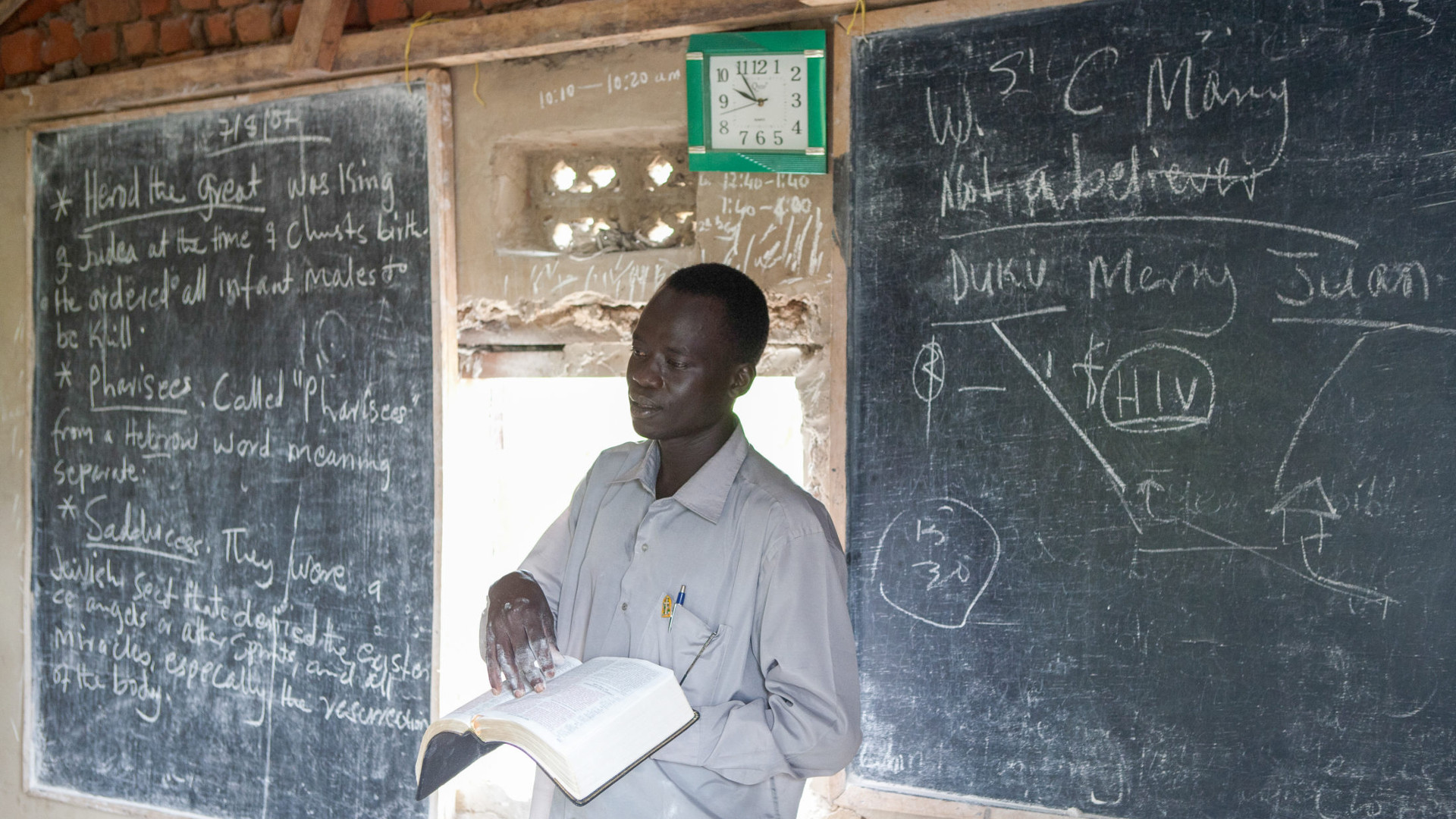
Southern Baptist missionaries have been in Africa since the 1850s. Christians have heralded the gospel widely and planted thousands of churches. But though large swaths of Sub-Saharan Africa are considered “reached” in terms of gospel proclamation, we can’t say “mission accomplished” yet. Put plainly, Africa desperately needs thousands of faithful shepherds who will rightly handle God’s Word, boldly teach it, lead healthy churches, and disciple new leaders. Apart from trained, godly leaders, the most prevalent theological threats facing Sub-Saharan Africa will continue to spread.
“Apart from trained, godly leaders, the most prevalent theological threats facing Sub-Saharan Africa will continue to spread.”
Threats to the Church in Africa
Three theological threats present a looming challenge for African churches, leaders, and IMB missionaries. While much more can be said about each, here’s the short version:
- The prosperity gospel
Imported from America, this is one of the most toxic movements threatening the church in Africa. Africans want to have better lives just like anyone. And they easily believe false teachers who have twisted the Bible into a message about living the good life here and now. - Syncretism
Many Africans mix traditional beliefs such as animism and spiritism with Christianity. One might readily profess faith in Christ but also continue living in fear of evil spirits. Church members in the pews are often seen wearing traditional charms and bracelets they have received from witch doctors for protection. - Unqualified pastors
This is, perhaps, the most serious threat. Many congregations are led by people who have never even opened the Bible, let alone evidenced a life of true Christian faith. When shepherds are incompetent or unqualified, flocks are defenseless against false teaching and syncretism.
To address these threats, IMB is working to provide a solid theological education to as many national partners as we can. We train them to love the Lord with all their heart, soul, mind, and strength. And we send them out to train others to do the same.
Three Missiological Aims
With the tremendous need in Africa before us, here are three important missiological aims we pray will result from prioritizing theological education in Africa.
1. To more efficiently make disciples
Africans can reach Africa better than Western missionaries. Not only do Africans know the culture and have the ability to deal with the uncertain conditions that are just part of living in Africa, but they have language skills to reach their people. It is not rare for African brothers and sisters to know four or more languages. Western missionaries take years to acclimate to one new culture and language.
Western missionaries are simply less equipped to adapt than national partners. By focusing on teaching sound doctrine to African partners, the disciple-making task can be accomplished in a more efficient manner. Emphasizing theological education entrusts God’s Word to the African brothers and sisters God has equipped to finish the Great Commission in their homeland.
2. To establish sustainable collaboration
Working side by side in cross-cultural contexts has its complexities. An improper partnership can create unstable churches that depend on outside subsidy, which ultimately leads to failing church plants. Theological education is a way to establish healthy partnerships and collaboration cross-culturally. By simply teaching what the Bible says, we let national brothers and sisters work in their context in a way that is faithful to Scripture and also makes sense to the culture they’re trying to reach. When the gospel is received and takes root, it can bear fruit in a way that’s indigenous to the context with no need for external support.
3. To prepare African believers to be global missionaries
Our prayer is to see Africans reaching Africa and beyond. We pray to see more African missionaries crossing borders and continents in order to accomplish the Great Commission. If theological education in Africa is strong, it will have an impact globally as God’s kingdom expands from Africa. By giving our national partners the knowledge, tools, and practical training to lead strong churches, not only will future generations of leaders emerge from within African churches, but they also will be able to send out trained workers to reap God’s harvest among the nations.
There is still much work to be done in Sub-Saharan Africa. The threats are real and our enemy refuses to accept defeat. Pray that the IMB’s efforts to provide theological education will yield healthy churches and bring great glory to God in Africa and beyond.
Nate Godby teaches English and provides training to Christian leaders in Africa where he also enjoys playing football (the real kind, i.e. “soccer”) and seeing God’s natural creation on safaris.

